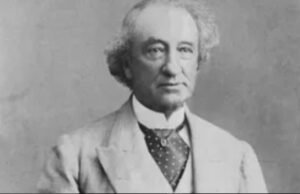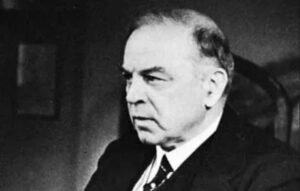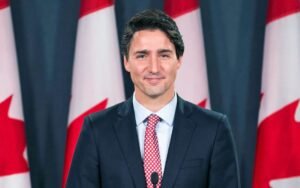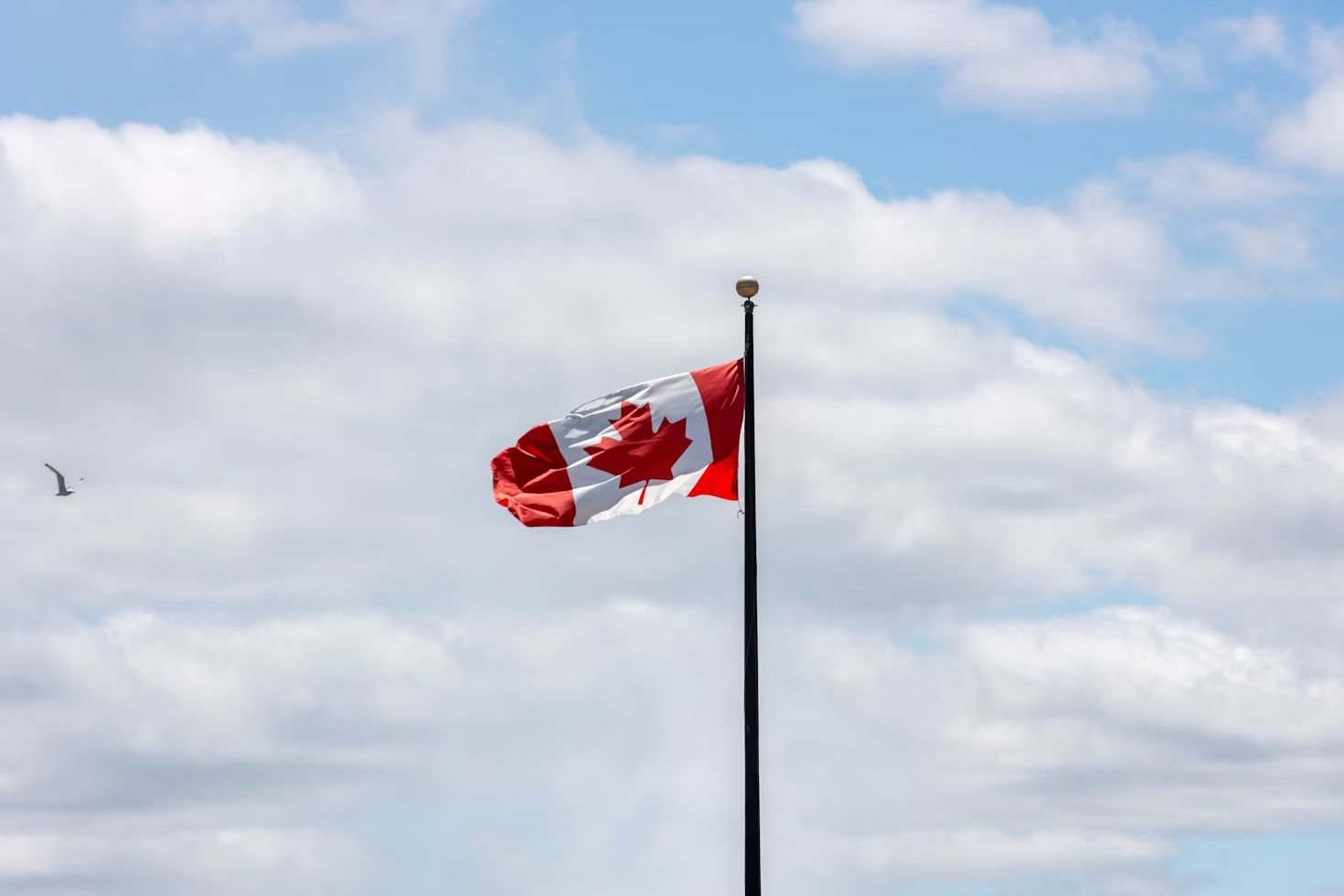This is a list of all the prime ministers of Canada, their terms In office, and their political parties:
Prime Minister | Term Start | Term End | Party |
|---|---|---|---|
Sir John A. Macdonald | 1867 | 1873 | Conservative |
Alexander Mackenzie | 1873 | 1878 | Liberal |
Sir John A. Macdonald | 1878 | 1891 | Conservative |
Sir John Abbott | 1891 | 1892 | Conservative |
Sir John Thompson | 1892 | 1894 | Conservative |
Sir Mackenzie Bowell | 1894 | 1896 | Conservative |
Sir Charles Tupper | 1896 | 1896 | Conservative |
Sir Wilfrid Laurier | 1896 | 1911 | Liberal |
Sir Robert Borden | 1911 | 1920 | Conservative/Unionist |
Arthur Meighen | 1920 | 1921 | Conservative |
William Lyon Mackenzie King | 1921 | 1926 | Liberal |
Arthur Meighen | 1926 | 1926 | Conservative |
William Lyon Mackenzie King | 1926 | 1930 | Liberal |
R.B. Bennett | 1930 | 1935 | Conservative |
William Lyon Mackenzie King | 1935 | 1948 | Liberal |
Louis St. Laurent | 1948 | 1957 | Liberal |
John Diefenbaker | 1957 | 1963 | Progressive Conservative |
Lester B. Pearson | 1963 | 1968 | Liberal |
Pierre Trudeau | 1968 | 1979 | Liberal |
Joe Clark | 1979 | 1980 | Progressive Conservative |
Pierre Trudeau | 1980 | 1984 | Liberal |
John Turner | 1984 | 1984 | Liberal |
Brian Mulroney | 1984 | 1993 | Progressive Conservative |
Kim Campbell | 1993 | 1993 | Progressive Conservative |
Jean Chrétien | 1993 | 2003 | Liberal |
Paul Martin | 2003 | 2006 | Liberal |
Stephen Harper | 2006 | 2015 | Conservative |
Justin Trudeau | 2015 | Present | Liberal |
Who Was The First Prime Minister Of Canada?

Sir John Alexander Macdonald was the first Prime Minister of Canada. He served two terms, first from July 1, 1867, to 1873, and then again from 1878 until he passed away in 1891.
Macdonald was instrumental in creating the Confederation of Canada, which united the British North American colonies into one Dominion.
Macdonald was born on January 11, 1815, in Glasgow, Scotland. His family moved to Kingston, Ontario, in 1820, and he became a lawyer in 1836.
Mac started his political career in 1844 when he was elected to the Legislative Assembly of the Province of Canada. He was a Conservative member for Kingston.
In the 1850s, he worked on unifying the provinces and strengthening ties with Britain. In 1854, he helped form the Liberal-Conservative Party with Sir George Étienne Cartier.
A major event in Macdonald’s career was the Charlottetown Conference in 1864. He and other leaders, including Cartier, discussed the idea of confederation.
This discussion led to the British North America Act in 1867, which created the Dominion of Canada. On July 1, 1867, Macdonald was appointed the first Prime Minister of Canada by the Governor General, Viscount Monck.
During his first term, Macdonald focused on building the nation. He helped Canada grow by adding Manitoba in 1870, British Columbia in 1871, and Prince Edward Island in 1873.
However, his government faced problems, such as the Pacific Scandal of 1873. This scandal involved accusations of bribery related to the construction of the Canadian Pacific Railway, and it forced him to resign.
But he came back to power in 1878 by winning an election with promises of trade protectionism and economic development.
Macdonald’s legacy is complicated. While he is remembered for founding Canada and expanding its territory, he is also criticized for his policies towards Indigenous peoples and his tough political tactics. He was committed to keeping a strong connection with the British Empire.
He once said, “A British subject I was born; a British subject I will die,” showing his loyalty to Britain. However, Sir John A. Macdonald died on June 6, 1891.
READ ALSO: Complete List Of Presidents Of The Dominican Republic
Who Was The Longest-Serving Prime Minister Of Canada?

William Lyon Mackenzie King is the longest-serving Prime Minister of Canada. He was in office for a total of 21 years and 154 days, spread over three different periods.
King first served as Prime Minister from 1921 to 1926, then again from 1926 to 1930, and finally from 1935 to 1948. Before he became Prime Minister, King studied law and political economy in the 1890s.
He became very interested in social welfare issues and went on to earn a PhD, making him the only Canadian Prime Minister with this qualification.
King started his political career in 1908 when he was elected to the House of Commons. In 1909, he became the federal minister of labor under Prime Minister Wilfrid Laurier.
However, he lost his seat in the 1911 federal election. Then, King worked for the Rockefeller Foundation and briefly as an industrial consultant.
When Laurier passed away in 1919, King took over as the leader of the Liberal Party. During his time as Prime Minister, after World War II, he removed wartime controls.
His government also introduced the Canadian Citizenship Act in 1946. Before this act, Canadians were considered British subjects living in Canada.
The new law officially created the concept of “Canadian citizens.” King’s management of the country during the war was successful, and his economic policies were considered some of the best among the nations involved in World War II.
In recognition of his achievements, King was ranked as the greatest Canadian Prime Minister in a survey of Canadian historians. He was also named a Person of National Historic Significance in 1968.
READ ALSO: List Of All Presidents Of Finland (1919-Present)
Who Is The Current Prime Minister Of Canada?

Justin Trudeau is the current Prime Minister of Canada since November 4, 2015. Trudeau is the 23rd person to serve as Prime Minister of Canada and is the leader of the Liberal Party of Canada, a role he has had since 2013.
His family background is quite notable; he is the son of Pierre Trudeau, who was also the Prime Minister of Canada. This makes Justin Trudeau the first child of a former Prime Minister to become Prime Minister himself.
Born on December 25, 1971, in Ottawa, Ontario, Justin Trudeau grew up in a family that was very involved in politics.
He went to McGill University, where he got a Bachelor of Arts degree in literature in 1994. Then he attended the University of British Columbia and earned a Bachelor of Education in 1998.
Before starting his political career, Trudeau worked as a teacher and was active in various charitable organizations. One of his roles was as the chair of Katimavik, a youth charity.
Trudeau moved into politics in 2007 when he won the Liberal Party nomination for the Montreal riding of Papineau. He was elected to the House of Commons in 2008 and was re-elected in 2011.
In 2013, he became the leader of the Liberal Party. Under his leadership, the Liberal Party won a majority in the 2015 federal election. Regardless, Trudeau has worked on several important issues like climate change, immigration, and social fairness.
His government has set goals to bring in many new immigrants each year and has tried to tackle the problem of housing affordability, though this has been challenging.

